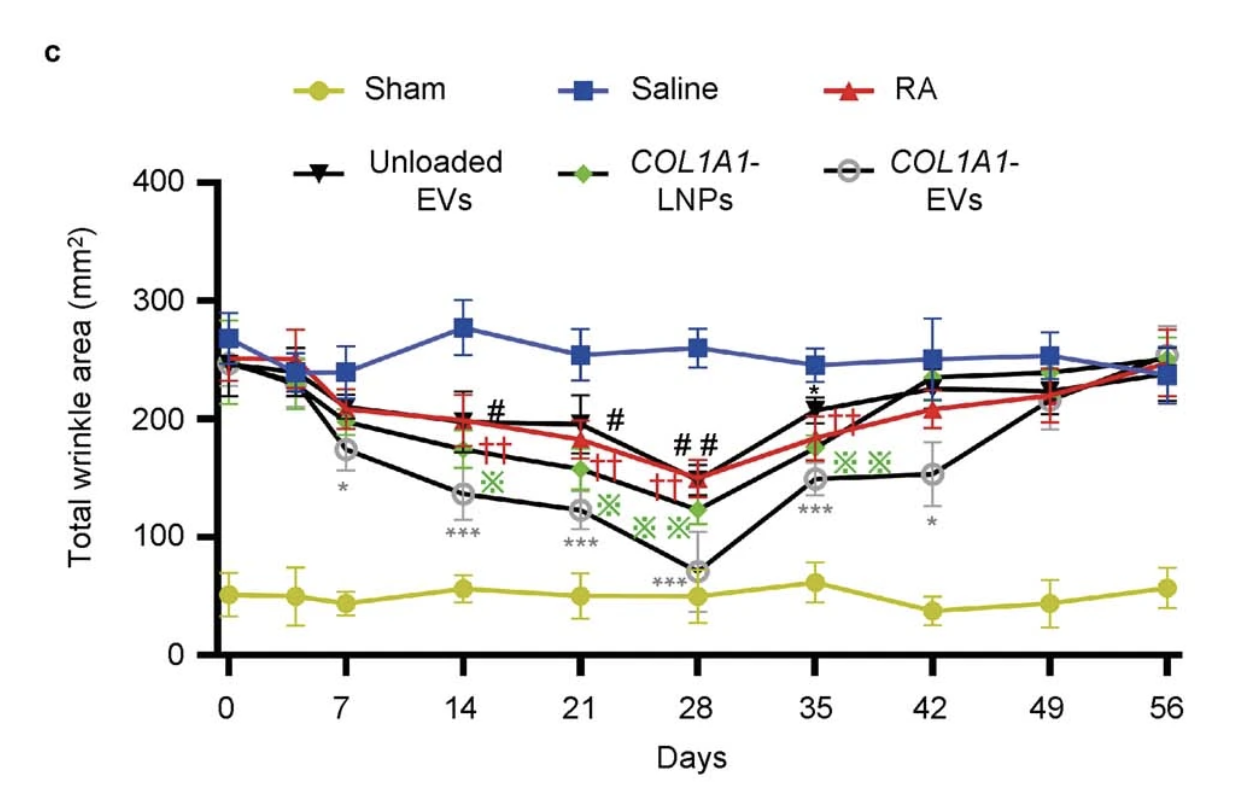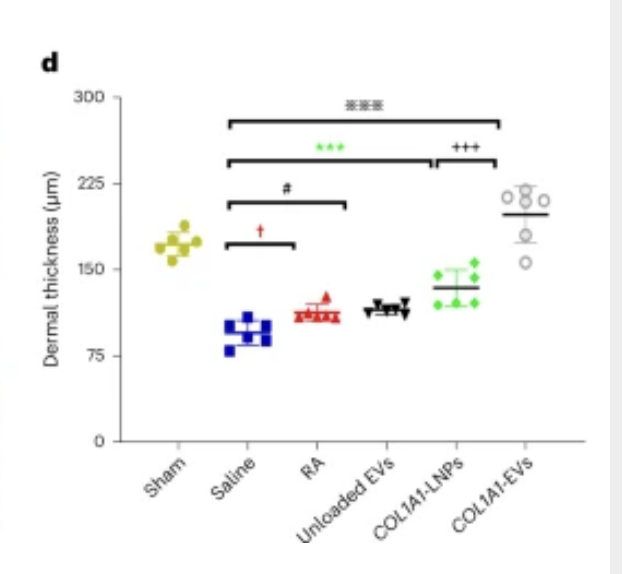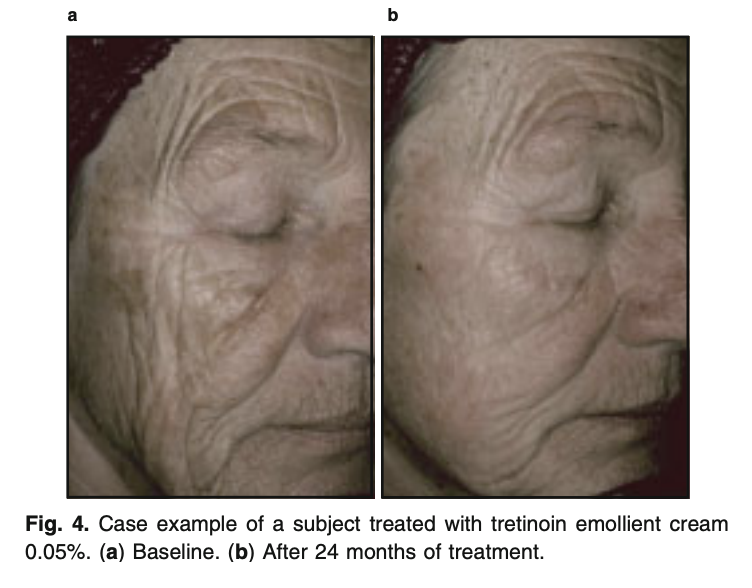Retinoids probably don't slow skin aging
Retinoids (retinoic acid, retinol, retinal, tretinoin, adapalene, etc) are commonly claimed to both revert and also slow down skin aging. But this seems wrong to me.
Reversing aging is quite difficult, and to my knowledge only a handful of things have enough data to support the claim of age-reversal (reprogramming being my go-to example). Slowed aging occurs in animals with caloric restriction and a few other things, but in general the default for both of these effects should be "no effect until proven otherwise". The sort of thing I'd want to see for "affecting aging" is reduced DNA damage or reduced epigenetic age; ie the converse of what UV radiation does: UV radiation does accelerate skin aging through DNA damage, and plausibly slowing down DNA damage accumulation in the skin should make it look younger for longer.
People believe retinoids reverse aging because topical application of retinoids make the skin look younger, increase collagen production (which declines with age), and make the skin thicker (reversing age-related thinning). This is not a controversial claim and it seems well accepted by the public and scientifically, here's one amongst many paper that has shown these effects: Kong et al. (2015)
But it is also understood that if one stops using retinoids then the skin goes back to "normal". To me this is clear proof that there is not really age-reversal happening: aging happens gradually not suddenly.
Some might think "but retinol is reversing skin thinning, and collagen decrease, and wrinkles", what are the odds that can be done without reversing aging! Well, quite high. There's a recent study (You et al. 2023) in mice that induced accelerated skin aging through continued exposure to UV radiation. Then their skin was treated with a retinoid or with collagen mRNA (delivered both in EVs and LNPs). Both treatments were effective at making the skin look younger, and both treatmentnts when stopped failed to make the changes permanent. Collagen expression then, perhaps singlehandedly is whats driving a lot of these effects, and we would agree that just overexpressing collagen is not de-ageing the cells:


But many studies (including the one from earlier) are short term. Long term retinol use reveals some other interesting changes: Thorne (1992) documented that indeed after stopping treatment the effects go away but they take a while (six months). Bhawan et al. (1996) reported also that while it is true that skin thickens in the first year then it thins in the period following that, returning to normal.
Retinoids also work well in older people that have not used retinoids, at least for a year before this study (Kang et al. 2005)

But we have: would the effects be even better if this person had been using retinoids their whole life? If that were true then we could say that retinoids do slow down skin aging. But that trial doesn't seem to have been done to this day. It could be doable: finding lifelong users of retinoids of a certain age, then treating a retinoid-naive cohort of a matched age, and then seeing if their skins look markedly different. Conversely, one could run a trial where lifelong retinoid users stop treatment and then see if their skin look better than average for their age.
So given what's published out there, I think the evidence supports using retinoids if one wants their skin "here and now" (or within the next year) to look younger, but it does not support its use "so that my skin looks younger in 50 years" relative to the alternative.
But if you know of evidence to the contrary, let me know!
Citation
In academic work, please cite this essay as:
Ricón, José Luis, “Retinoids probably don't slow skin aging”, Nintil (2025-05-17), available at https://nintil.com/retinol-does-not-slow-aging/.
Comments